In Havana, in Cuba, in the world, the news has started to spread. It was his brother, President Raúl Castro, who from his office in the Palace of the Revolution read a short note announcing the news: this November 25, at 10:29 pm, the inexorable man of Cuba’s history in the last 60 years passed away.
The details of the funeral services will be announced in the early morning hours of November 26. But before this, and following his will, the body will be cremated. The brother/president of the people that has started finding out about the news, signed off close to midnight with “¡Hasta la victoria siempre!” (Onward to Victory!). This will be a long day for Cuba.
Cuban President Raúl Castro announced on TV the death, on November 25 at 10:29 pm., of former Cuban head of state Fidel Castro Ruz. We will continue reporting.
The Council of State of the Republic of Cuba announced there will be nine days of National Mourning, from 6:00 am of November 26 to 12:00 am of next December 4. During that time, the note in the newspaper Granma explains, all activities and public shows will recess, the Cuban flag will fly at half-mast in public buildings and military establishments; and radio and television will maintain a special broadcast during those days.
The note published by the newspaper Granma on Saturday at dawn reports that the Cuban people will be called upon to sign “the solemn oath of following the concept of Revolution, expressed by our historic leader in May 2000, as an expression of the will to continue with his ideas and our socialism.”
“Revolution is a sense of the historic moment; it is changing everything that must be changed; it is full equality and freedom; it is being treated and treating others as human beings; it is emancipating ourselves with own efforts; it is challenging powerful dominating forces in and outside the social and national sphere; it is defending our values in which we believe at the cost of any sacrifice; it is modesty, unselfishness, altruism, solidarity and heroism; it is struggling with courage, intelligence and realism; it is never lying or violating ethical principles; it is a deep conviction that there does not exist a force in the world capable of crushing the force of truth and ideas. Revolution is unity, it is independence, it is fighting for our dreams of justice for Cuba and for the world, which is the foundation of our patriotism, our socialism and our internationalism.”
U.S. President Barack Obama published a statement regarding the death of the Cuban leader:
“At this time of Fidel Castro’s passing, we extend a hand of friendship to the Cuban people. We know that this moment fills Cubans – in Cuba and in the United States – with powerful emotions, recalling the countless ways in which Fidel Castro altered the course of individual lives, families, and of the Cuban nation. History will record and judge the enormous impact of this singular figure on the people and world around him.
“For nearly six decades, the relationship between the United States and Cuba was marked by discord and profound political disagreements. During my presidency, we have worked hard to put the past behind us, pursuing a future in which the relationship between our two countries is defined not by our differences but by the many things that we share as neighbors and friends – bonds of family, culture, commerce, and common humanity. This engagement includes the contributions of Cuban Americans, who have done so much for our country and who care deeply about their loved ones in Cuba.
“Today, we offer condolences to Fidel Castro’s family, and our thoughts and prayers are with the Cuban people. In the days ahead, they will recall the past and also look to the future. As they do, the Cuban people must know that they have a friend and partner in the United States of America.”
Although Moscow does not believe in shedding tears, this Saturday the Russian capital has been witness to the sadness of hundreds of Muscovites who, despite the cold and the intense snow, have spontaneously approached the façade of the Cuban embassy to pay tribute to Fidel Castro.
Flowers, photos, candles and chants paying tribute to him have occurred throughout the day in front of No. 66 Bolshaya Ordynka Street, where the diplomatic mission is located.
Many of those approaching are youths who didn’t even know about the previous stages in which the Soviet Union had close ties with Havana.
But this is no surprise in a country where the name of the leader is indissolubly linked to Cuba, to the point that many might not have an idea where the island is but they do identify it with the image of the bearded revolutionary.
The social media joined the tribute, reproducing the photos and most famous phrases of the commander. At the end of the day, more than 50,000 tweets were registered about the subject written in Russian.
The Russian media have dedicated the day to the death of the Commander, and many political figures, starting with President Vladimir Putin, have expressed their condolences.
“The free and independent Cuba built by him and his comrades became an influential member of the international community and has served as a source of inspiration for many countries and peoples,” said the Russian head of state.
“Fidel Castro was a sincere friend who Russia could trust,” he added.
(Natasha Vázquez)
On Twitter heads of state from different countries have reacted to the news. The social network has been full of messages of condolences over the death of the former president and leader of the Cuban Revolution.
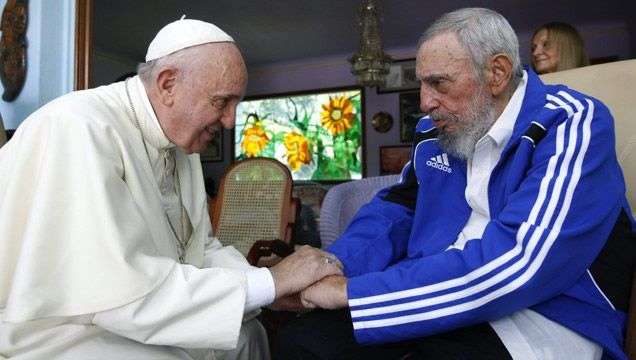
Pope Francis also sent his condolences to Raúl, expressing his “feelings of sorrow.” “I offer my prayers to the Lord for his rest and entrust all the Cuban people with the maternal intercession of Our Lady of Charity of El Cobre, that country’s patron saint.”
Meanwhile, High Representative of the European Union for Foreign Affairs and Security Policy Federica Mogherini transmitted her condolences to family members and said:
“On knowing the news of the death of Commander Fidel Castro, in the first place I would like to transmit my most heartfelt condolences to his brother Raúl, his family members and friends.
“Fidel Castro was a decided man and he was also a historic figure. He died at a time of great challenges and uncertainties as well as of great changes in his country.
“When the European Union reached an agreement of political dialogue and cooperation last spring, it began a new chapter in the already close relations with the Cuban people. The European Union will continue forward with its commitment to Cuba.”
U.S. President-elect Donald J. Trump also sent to the media a statement that contrasts with President Obama’s forms and focus:
“Today, the world marks the passing of a brutal dictator who oppressed his own people for nearly six decades. Fidel Castro’s legacy is one of firing squads, theft, unimaginable suffering, poverty and the denial of fundamental human rights.
“While Cuba remains a totalitarian island, it is my hope that today marks a move away from the horrors endured for too long, and toward a future in which the wonderful Cuban people finally live in the freedom they so richly deserve.
“Though the tragedies, deaths and pain caused by Fidel Castro cannot be erased, our administration will do all it can to ensure the Cuban people can finally begin their journey toward prosperity and liberty. I join the many Cuban-Americans who supported me so greatly in the presidential campaign, including the Brigade 2506 Veterans Association that endorsed me, with the hope of one day soon seeing a free Cuba.”
About when Fidel predicted his own death
In one of his last participations in a public event, in April 2016, visibly aged and soon to turn 90 the Commander in Chief of the Cuban Revolution, Fidel Castro Ruz, referred to his death: “I will soon turn 90, such an idea had never occurred to me and it was never the fruit of an effort, it was the whim of chance. I will be like everyone else. We will all reach our turn.”
That is what he said in the closing of the 7th Congress of the Communist Party of Cuba (PCC), and he added… “But the ideas of the Cuban communists will remain as proof that, if we fervently work with dignity, the material and cultural goods that human beings need can be produced on this planet, and we must relentlessly struggle to obtain them. We must tell our brothers and sisters of Latin America and the world that the Cuban people will overcome.”

“Perhaps this will be one of the last times I speak in this room. I have voted for all the candidates that underwent consultations by the Congress and I appreciate the invitation and honor of your listening to me. I congratulate you all, and in first place, comrade Raúl Castro for his magnificent effort.”
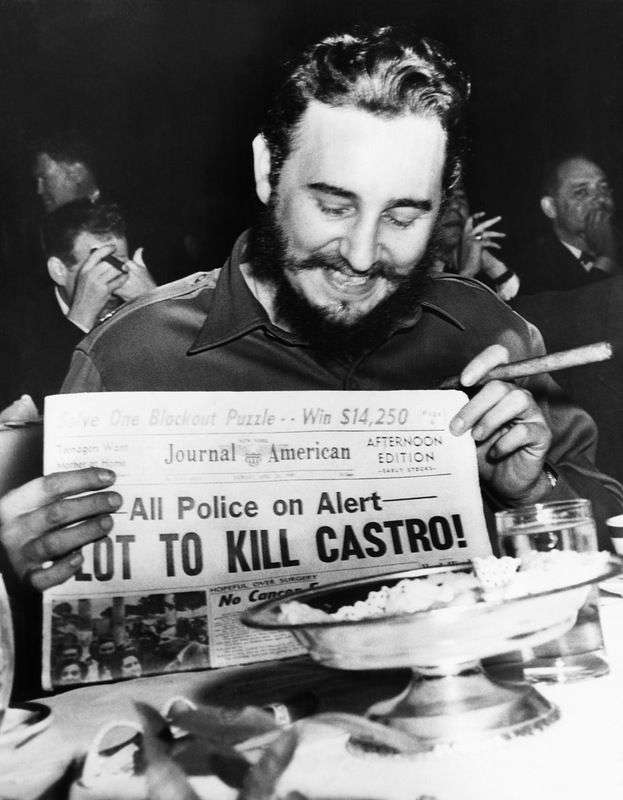
“I have faith in this formidable awakening of our continent. I have absolute faith in the future of this continent. I have faith and can affirm here that I am sure that America’s future will be a very different future from the one it has had until now. Everything depends on our faith, everything depends on our own effort, everything depends on us.”
Speech in New York’s Central Park, the United States, April 24, 1959.

On January 8, 1959 Fidel Castro spoke for the first time, from Havana, to the people of Cuba. That day he had entered the capital heading the Freedom Caravan, and from the Columbia barracks he gave a speech before hundreds of thousands of persons who had met there.
“I know that speaking tonight here is one of the most difficult duties, perhaps, in this long process of struggle that began in Santiago de Cuba on November 30, 1956. The people are hearing, the revolutionary fighters are hearing and the soldiers of the Army, whose fate is in our hands, are listening.”
The guerrilla fighter who led the insurrection against the Batista dictatorship assessed the moment as “decisive for our history: the tyranny has been defeated. There is immense joy; there still remains much to be done. Let’s not fool ourselves believing that from now on everything will be easy; perhaps from now on everything will be more difficult.”
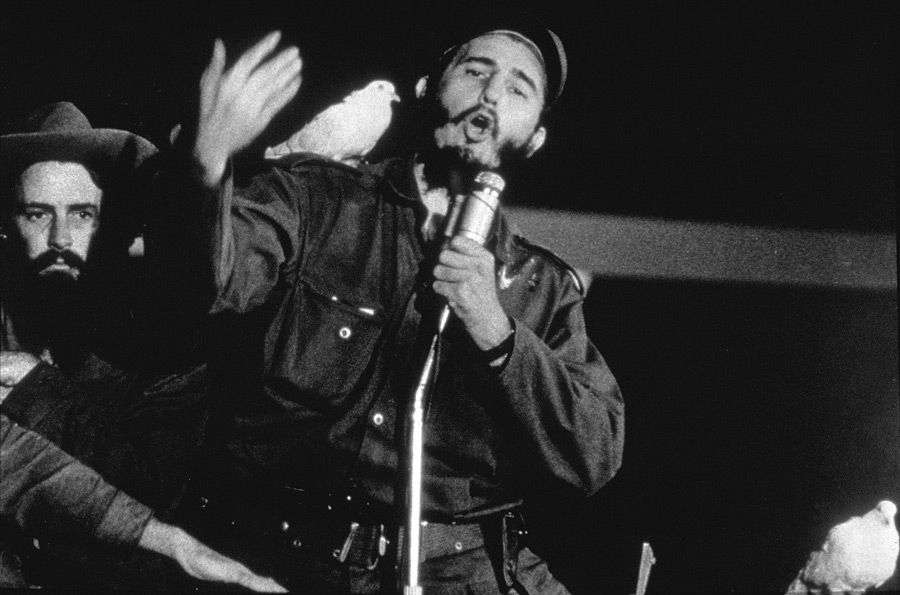
Fidel Castro, January 8, 1959. Photo: Flip Schulke.
It was a long speech, especially famous – legendary: a group of white doves landed on his shoulders and they remained there. It is known as “the speech of the doves.” Fidel Castro, moved, thanked the crowd and made a prediction about how his death would be:
“What’s important, or what I still have to tell you, is that I believe that the rallies of the people of Havana today, the mass rallies of today, that kilometers-long throng – because this has been amazing, you saw it; it will appear in the films, in the photographs -, I believe that, sincerely, has been an exaggeration of the people, because it is much more than what we deserve. (EXCLAMATIONS OF: “NO!”)
“I also know that never again in our lives will we again witness such a mass of people -, and it is the day in which we die, because we, when they have to take us to the tomb, on that day, so many people will again come together like today, because we will never disappoint our people!”.

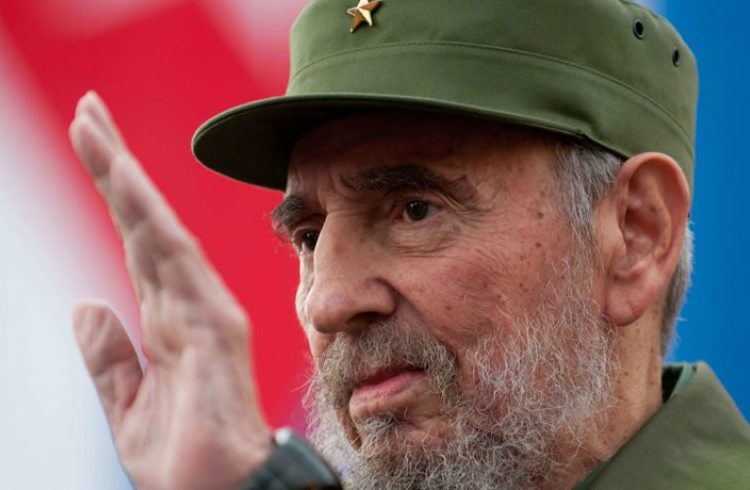





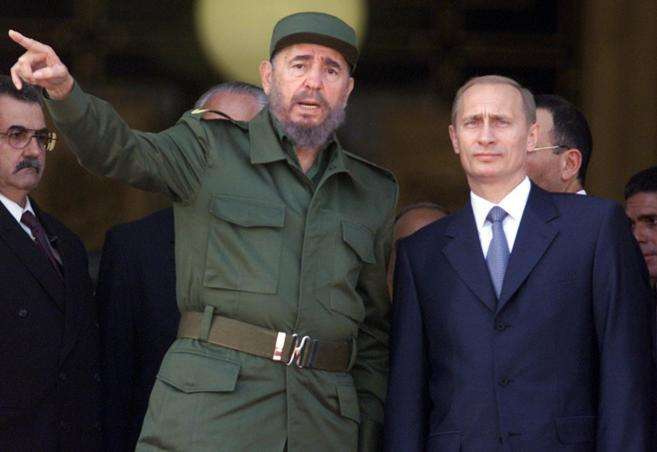
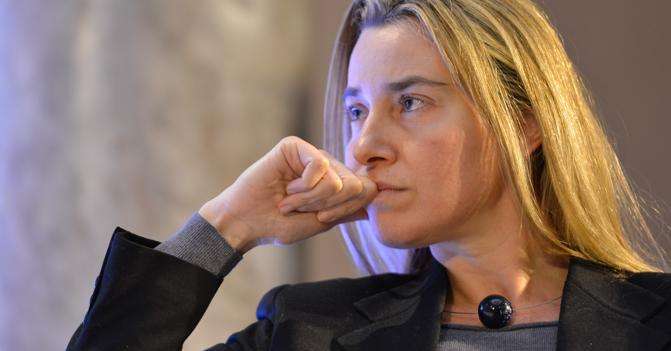





¡Qué alivio!